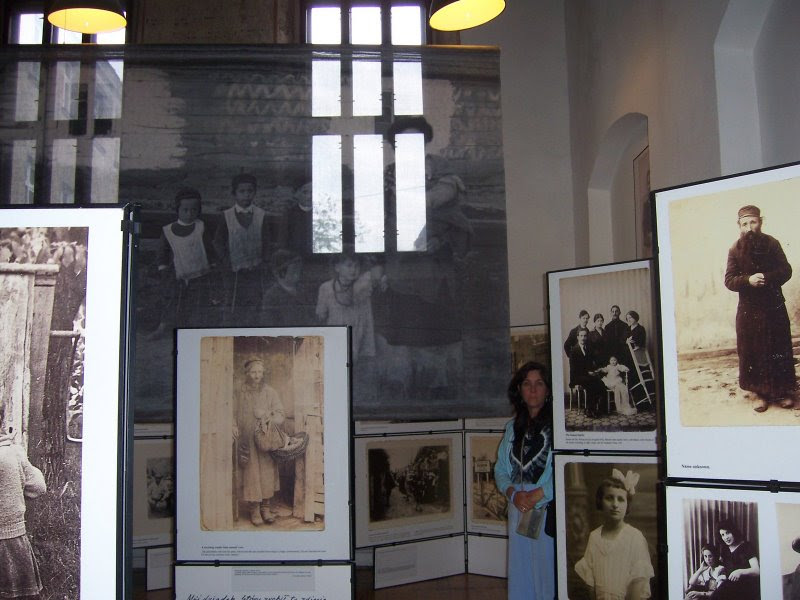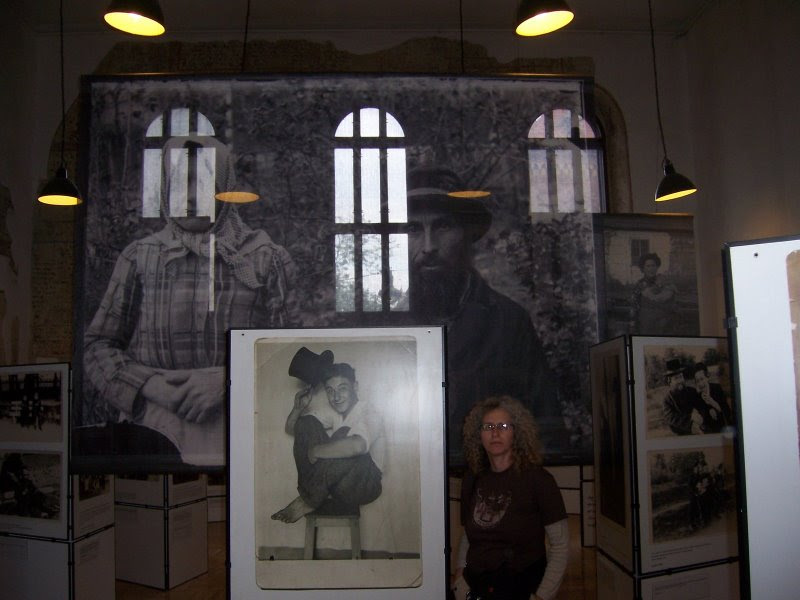Notes: I realize this is not a story about the Quarantine, or even about things that happened during the Quarantine. It is a story I performed at a story-telling event in Mesa, the night Before everything in my town was about to get shut down and go into quarantine. It was a very surreal moment. The person running the event had a bunch of Clorox wipes at the microphone for anyone who would perform that night. I could barely stand, having herniated discs, so I leaned on a few chairs to speak. I had a few Jewish friends in the audience who were quite moved by my story. I hope this story moves you in some way. This is my personal experience. Enjoy.
It’s 2009. My friend, Bonnie, who is also Jewish, and I are attempting to re-create our backpacking trip to Europe 27 years, 3 kids and 2 ex-husbands later, but this time our bags had wheels.
Our itinerary included seeing Jewish temples in most of the 5 countries we would visit in Eastern Europe. For a long time, I tried to keep the fact that I was a Jew under wraps, for one thing, so I wouldn’t be a target for the Jew haters, and also because I wasn’t particularly proud of the tribe – yet. But Bonnie was really interested in Judiasm, and we both had ancestry in the Slavic countries, so we decided to explore our heritage.
There are only about 15 Million Jews in the world, most of whom live in Israel and the United States. There’s been a surge in anti-semitism lately, and frankly, I really can’t figure out the logic. After all, most of the people who hate us are Christian, and well, their leader was a nice, Jewish boy. So…go figure. I really think it’s just self-loathing. Anyway, I never really thought much about being a Jew. Until 2009.
The temple in Prague was ornate, with a wealth of Jewish historical artifacts on the first floor. On the second floor were photographs of many Jews who had died in the Holocaust. My dad, who grew up in Poland before moving to Brooklyn, had told me about some of his relatives that never made it out, but I never really felt empathy for them; they were just stories about people I didn’t know. That day, in the temple, something struck deep inside of me and I could feel the pain of every person in those photos. I could not bear to be in the temple any longer and ran out crying.

When Bonnie and I got to Krakow, Poland, in 2009, there were only a few hundred Jews that lived in the city. After wandering around aimlessly, we stumbled into an avant-garde bookstore. Upstairs was an exhibit by a famous Polish photographer. The room was lit only by hazy light pouring through large windows about 4 feet off the floor. Transparent canvases with lifesize photos hung in the middle of the room, suspended by wires from the ceiling. The artist had collected the photos from all over the world of people who had been in the concentration camps, along with a brief dossier. Some had been survivors, and many had not. Light from the sun shone in streaks across the room, penetrating the photos, creating a ghost-like effect. Everyone in the room spoke in hushed tones.
Before I left for Europe in 2009, I visited the Native American museum in Arizona, and also visited the ruins of several indigenous tribes. Some of their people still remained, but they were vestigial and barely thriving. I explored their situation from the lens of an anthropologist, considering that many other cultures had come and gone. It was an intellectual knowing, not internal one.

As I walked around the exhibit in the bookstore in Krakow, I listened to the conversations of the onlookers. They spoke about the photos as if the Jews had already been eliminated from existence, or at least would be soon, and yes, wasn’t it a tragedy, and so forth, sounding like anthropologists. But here I was, right behind them, one of the remaining members of the tribe. We were a tribal people! Like the Native Americans. Suddenly, I felt myself melt into the body of an Anasazi, or a Hohokam, or a Polish Jew, or someone ancient who exists only as a memory. I felt like a ghost, I felt like I would dissolve onto one of the canvasses, becoming part of a culture that once was. And recently it has dawned on me – due to intermarrying, the unwillingness to identify as a Jew, or violence, we could dissolve into obsolescence. So, where do I fit in? Whether we fade into the greater culture or get picked off by hatred, it is up to me, up to us, the Jews, to keep the tribe alive, or at least, the memory of us.
